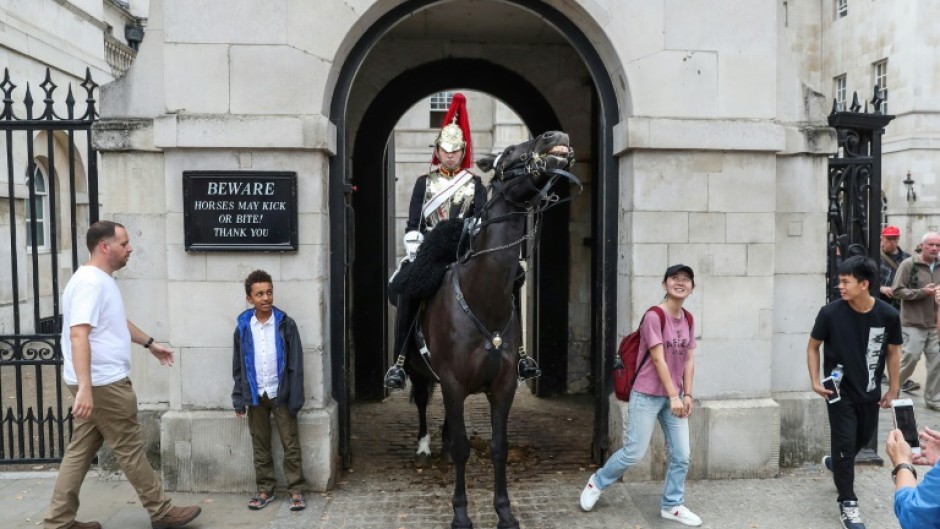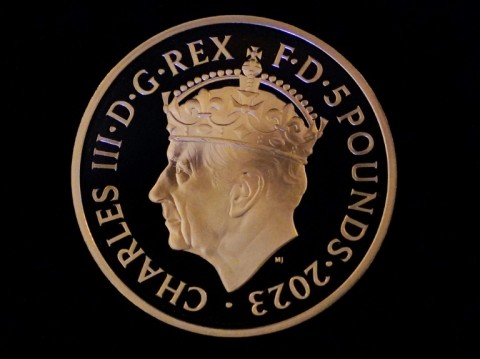
LONDON - From the national anthem to coins, stamps, prisons and warships, many everyday aspects of life in Britain have changed between the accession of King Charles III and his coronation on Saturday.
The change in monarch triggered a wave of changes throughout Britain and the other Commonwealth realms where he is also head of state.
Gradually, Charles will make his mark on banknotes, passports, postboxes and theatres, with some changes timed for the coronation.
- National anthem -
Britain's national anthem is now "God Save the King", with male-version lyrics that had not been sung since 1952 -- catching many people out.

It is also a national anthem in New Zealand and the royal anthem in Australia and Canada.
The new version was officially sung for the first time at a memorial service for Queen Elizabeth II on September 9, 2022, the day after her death. Many were visibly checking the lyrics.
Opera singer Katherine Jenkins made the first recording. The Welsh mezzo-soprano was recording in a rural church on September 9 when the BBC got in touch. It was broadcast that afternoon.
"We prayed for King Charles III and then I sang it," she said. "It was really, really emotional."
Jenkins said she "really had to think about" the new words, "singing it with a sense of looking forwards and continuity".
- Passports -
The first British passports in Charles's name will be issued from mid-2023. Those in Elizabeth's name remain valid until expiry, meaning some will be used until 2033.
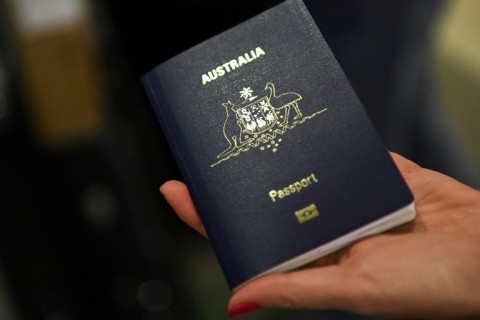
All passports therefore currently still read: "Her Britannic Majesty's Secretary of State Requests and requires in the Name of Her Majesty all those whom it may concern to allow the bearer to pass freely without let or hindrance, and to afford the bearer such assistance and protection as may be necessary."
Similar text appears inside Australian, Canadian and New Zealand passports.
More than a million Australian passports printed before Elizabeth's death will be used up before the revised text comes in.
- Coins and banknotes -
The first coins bearing the king's head entered circulation in Britain in December. He approved the portrait by British sculptor Martin Jennings.
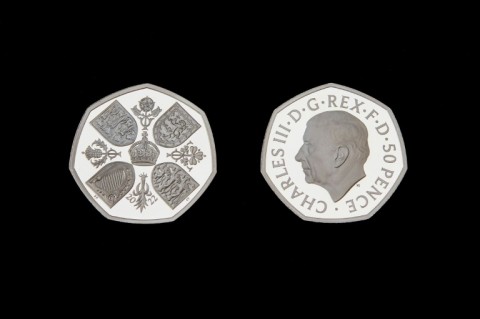
The Royal Mint released 4.9 million 50-pence coins which celebrate the life of Queen Elizabeth on the reverse.
Charles is depicted facing left, as per tradition looking the opposite way to his predecessor.
A second 50p coin celebrates the coronation, featuring Westminster Abbey and Charles wearing a crown, while a special £5 coin depicts the coronation regalia.
Elizabeth's portrait appeared on several currencies, including coins of the East Caribbean dollar, Canada, Australia and New Zealand.
The first Bank of England notes featuring Charles are set to enter circulation by mid-2024. The designs otherwise remain unchanged.
But Australia's central bank will replace Elizabeth on the $5 note with a design honouring Indigenous culture.
- Stamps -
Britain's Royal Mail released the first postage stamps featuring the new monarch's image on April 4. The portrait is adapted from Jennings' portrait.
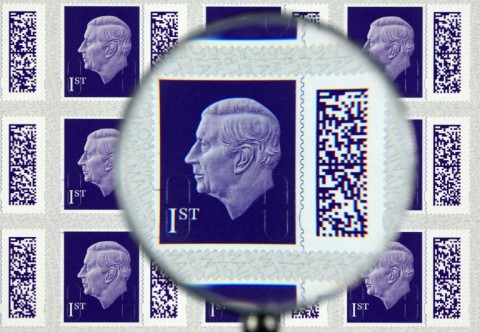
Stamps featuring Elizabeth will be sold until they run out.
A special set of coronation stamps entitled "A New Reign" celebrates causes championed by the king.
The four stamps depict the coronation, diversity and community, the Commonwealth, and sustainability and biodiversity.
New postboxes will feature the CIIIR cipher, for Charles III Rex.
The first Isle of Man post box bearing the cipher was unveiled on April 27 at the Postal Headquarters in the capital Douglas.
- Theatres, troops and twang -
Her Majesty's Theatre in London's West End, where "The Phantom of the Opera" has been running since 1986, will revert to becoming His Majesty's on Saturday.
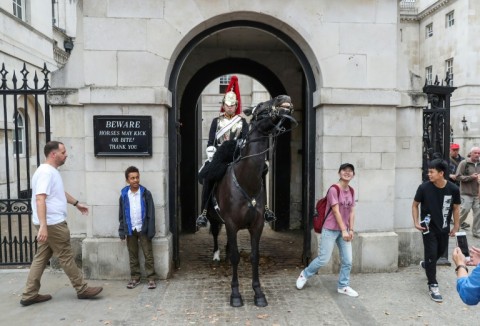
In the military, new recruits now metaphorically take the king's shilling to sign up, and adhere to the king's regulations once in the ranks or board one of His Majesty's ships.
It is now the King's Life Guard which screams at tourists to make way or stand back from the soldiers or horses on ceremonial duty in London.
The police are now preserving the king's peace.
In law, suspects who admit guilt and testify against their accomplices in return for a lenient sentence are now turning king's evidence. Senior lawyers are now king's counsel (KC).
Prisoners are being detained at His Majesty's pleasure.
And speakers of Received Pronunciation, the poshest and most socially prestigious accent, will have to aspire to Charles's vowels and diphthongs to speak the King's English.

